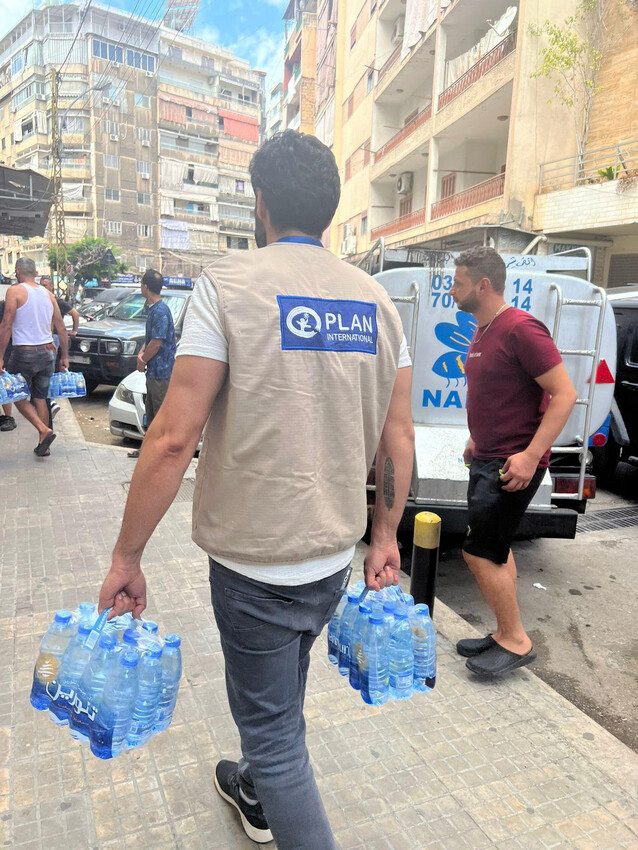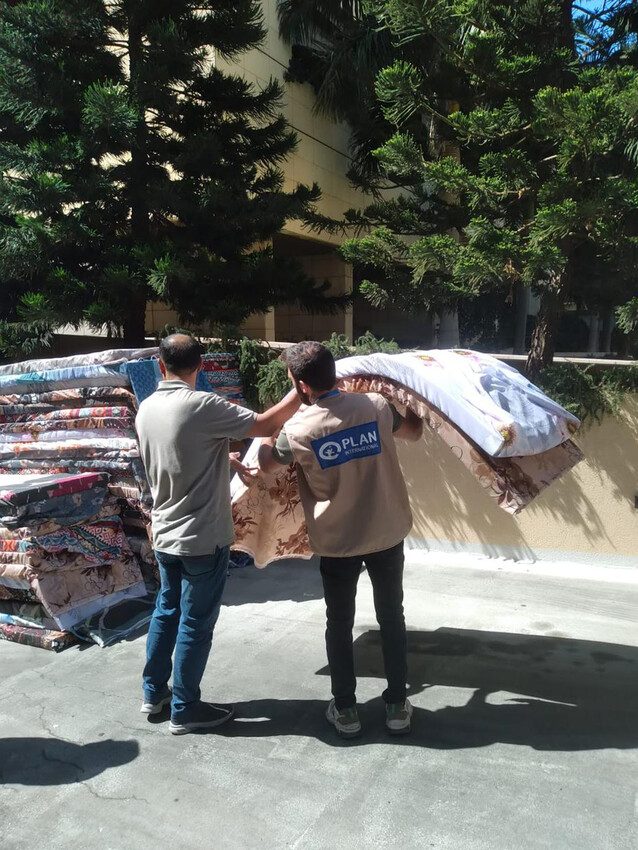Children and families in Lebanon need urgent humanitarian assistance
16 October 2024Children in Lebanon who have been forced to flee their homes as a result of escalating conflict with Israel are facing health risks as shelters become more crowded by the day.
Over 1.2 million people inside Lebanon – more than one fifth of the country’s population – have become displaced due to the escalation of conflict three weeks ago, fleeing their homes in fear for their lives as airstrikes intensify.
Israeli airstrikes have killed 2,169 people to date since October 2023, including at least 127 children and 10,212 people have been injured.
Schools turned into shelters
More than 1,000 schools and commercial buildings have been turned into shelters, and of these, 837 have already reached their maximum capacity. Most of these buildings do not have the capacity to supply the clean water and sanitation facilities required for vast numbers of people, making it hard for people to access showers and bathing facilities.
“When discussing the needs in these shelters, it’s hard to know where to start. There is a lack of hygiene, and a lack of water for bathing and cleaning. There can be up to 200 people on one floor, with only three bathrooms, so you can imagine the state of these bathrooms” said Samer El-Fakih, Head of Operations for Plan International Lebanon.
“Access to essentials like clean water, hygiene products, and food is critical. Due to lack of adequate sanitation facilities, many children and families have gone weeks without bathing, and we’ve had to include anti-flea treatments in hygiene kits to maintain basic health standards.”
“I have seen rooms which are four by four metres and have 10-14 people living there. The whole room will have one or two mattresses, so they put them next to each other and sleep however they can fit. There are mothers who told us that when they didn’t have a mattress, instead of sleeping on a bare floor they would spread Kleenex or tissue paper so that they weren’t sleeping directly on the dirt.”
Five hospitals damaged
Five hospitals have been damaged in the attacks in Lebanon and the World Health Organisation have reported that of the 207 primary health care centers in areas impacted by the conflict almost half have been forced to close, severely limiting essential access to health services.
“Families were forced to flee their homes, some with just the clothes on their backs,” adds Hasan Charafeddine, Livelihoods Specialist for Plan International Lebanon.
“Their future is a blur right now. They don’t know where they are going. Today they are here in a shelter, but for tomorrow, are we they going back home or moving to another shelter? Are they going to reunite with their families? Are they still alive? Distress levels are at their highest.”
“People are losing hope. It’s not easy to see people, in such a situation, but we are trying as much as possible to support them.”


Plan scaling up operations
Plan International Lebanon has been supporting children and families, primarily from the South of the country, impacted by the conflict since October 2023. The NGO has significantly scaled up operations over the last three weeks, which has also seen a drastic rise people leaving their homes in the southern suburbs of Beirut, some of whom were forced to sleep on the streets before reaching shelters.
Staff from Plan International Lebanon, some of whom have been forced to evacuate their homes themselves, have been running aid distributions daily, supporting children and families with urgently needed supplies such as ‘ready to eat’ food kits, blankets and mattresses, and dignity packs containing menstrual health supplies and other hygiene items.
As schools are turned into shelters, thousands of children are also losing out on their right to an education and instead living in overcrowded and unsafe conditions. Plan International continues to demand a ceasefire in Lebanon and Gaza, calling on all parties to end this devastating conflict in which children and their families are paying the highest price.


